In this blog, we have gathered the top 7 computer vision books. Learning this subject is a challenge for beginners. Take your learning experience one step ahead with these seven computer vision books. Explore a range of topics, from Computer vision to Python.
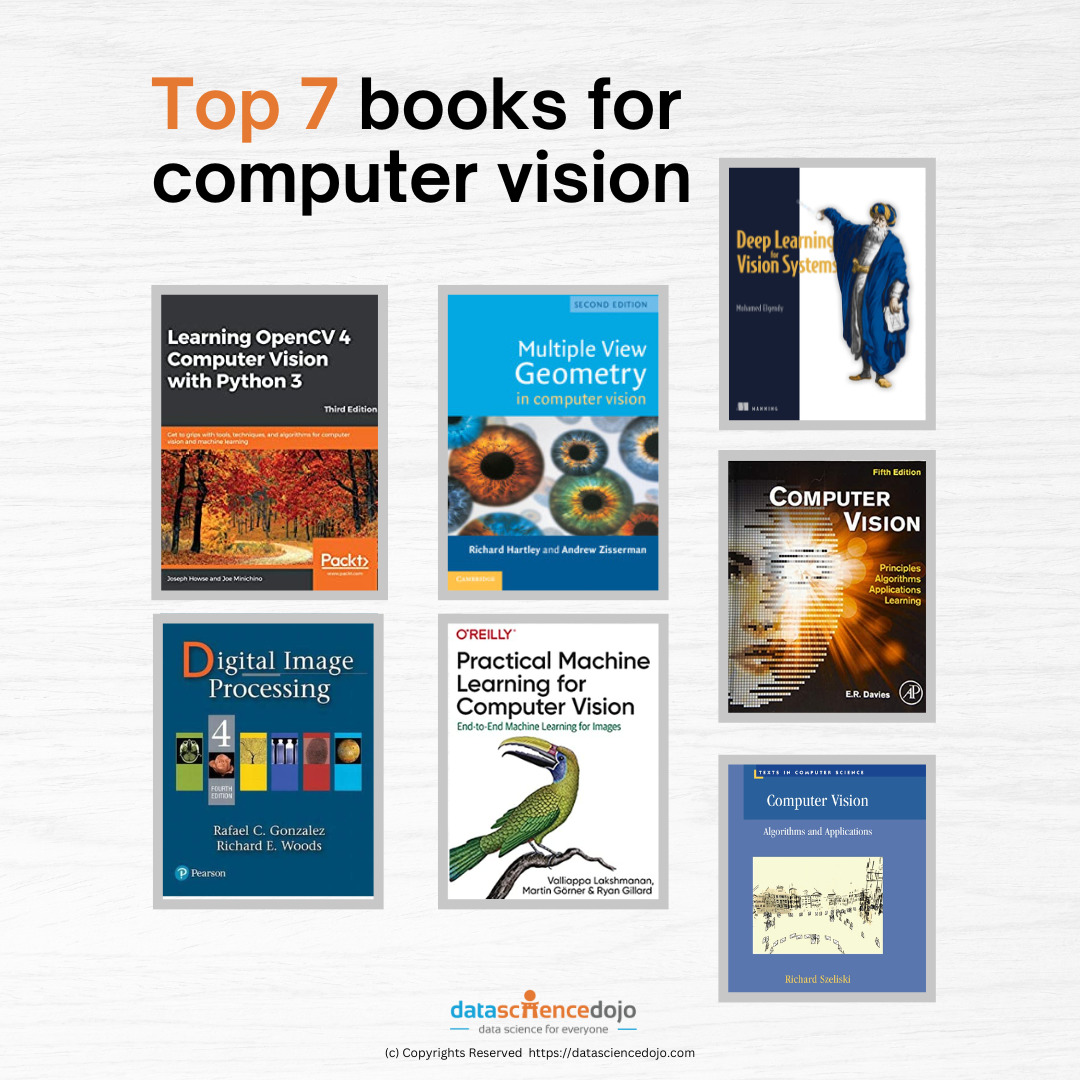
1. Learning openCV 4 computer vision with Python 3 book by Joe Minichino and Joseph Howse:
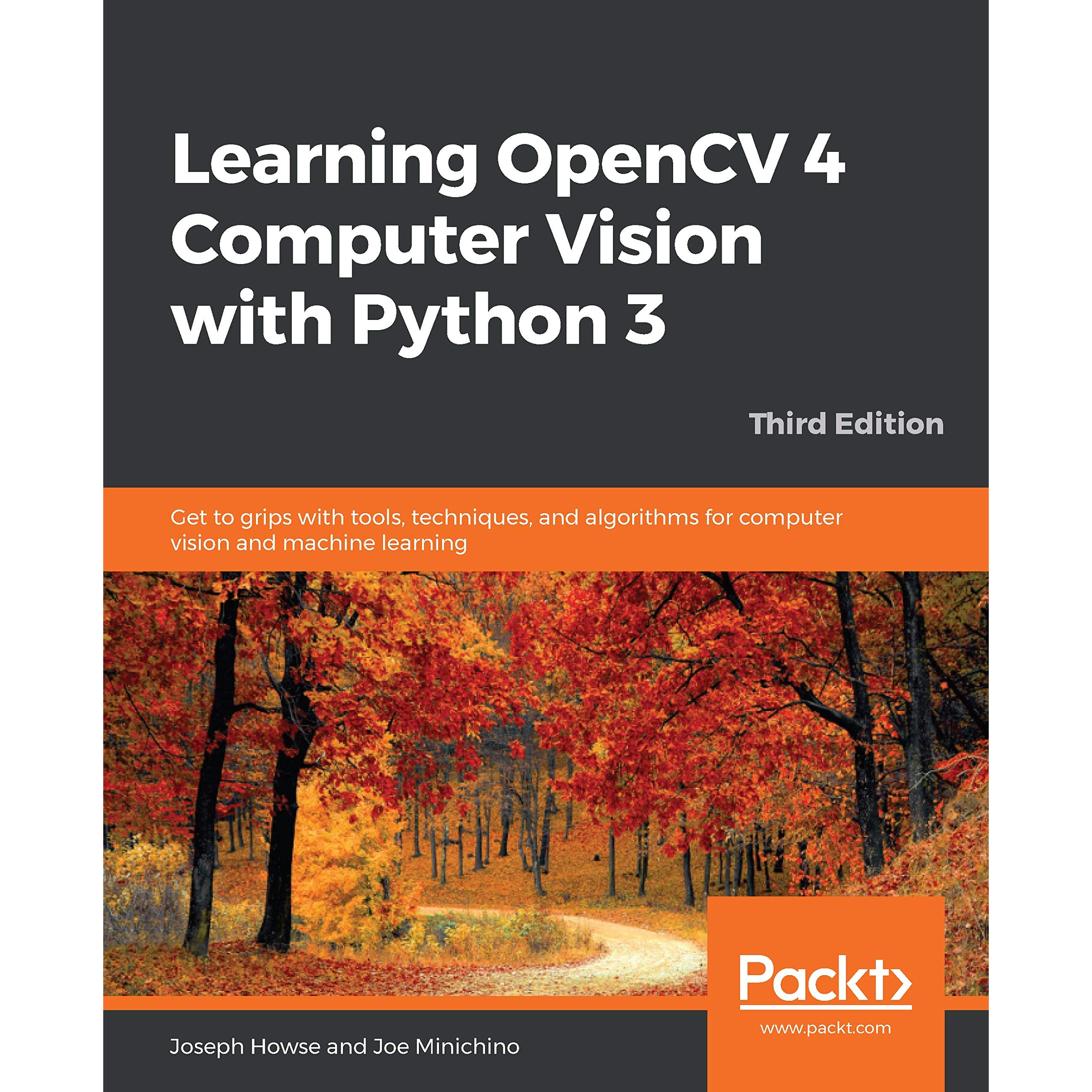
This book will teach you how to create a computer vision system using Python. You will learn how to use the OpenCV library, which is a cross-platform library that has been used in many research and commercial projects. Joe and Joseph in this book introduce computer vision and OpenCV with Python programming language.
Both novices and seasoned pros alike will find something of use in this book’s extensive coverage of the subject of CV. It explains how to use Open CV 4 and Python 3 across several platforms to execute tasks like image processing and video analysis and comprehension.
Machine learning algorithms and their many uses will be covered in this course. With these ideas in hand, you may design your image and video object detectors! ~ Adam Crossling, Marketing manager at Zenzero.
2. Multiple view geometry in computer vision book by Richard Hartley:
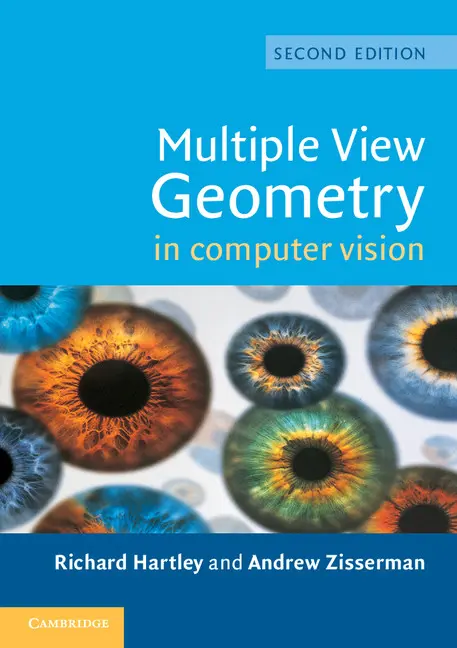
This book discusses the use of geometry and algebra in image reconstruction, with applications to computer vision. In this book, Richard discusses the geometry of images and how they are processed in this area. The book covers topics such as image formation, camera models, image geometry, and shape from shading.
The main goal of this book is to provide a comprehensive introduction to computer vision by focusing on the geometric aspects of images. This article describes a wide variety of tactics, from traditional to innovative, to make it very evident when particular approaches are being employed.
Camera projection matrices, basic matrices (which project an image into 2D), and the trifocal tensor are all introduced, along with their algebraic representations, in this book. It explains how to create a 3D model using a series of photographs taken at various times or in different sequences.
3. Principles, algorithms, applications, learning book by E. R. Davies:
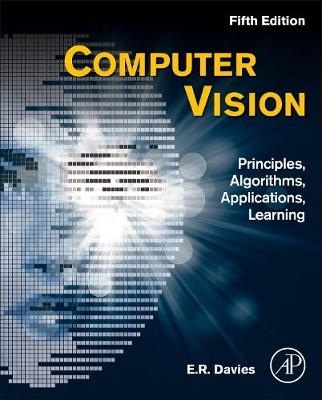
New developments in technology have given rise to an exciting academic discipline: computer vision. The goal of this field is to understand information about objects and their environment by creating a mathematical model from digital images or videos, which can be used to extract meaningful data for analysis or classification purposes.
This book teaches its readers not just the basics of the subject but also how it may be put to use and gives real-world scenarios in which it might be of benefit.
4. Deep learning for vision systems by Mohamed Elgendy:
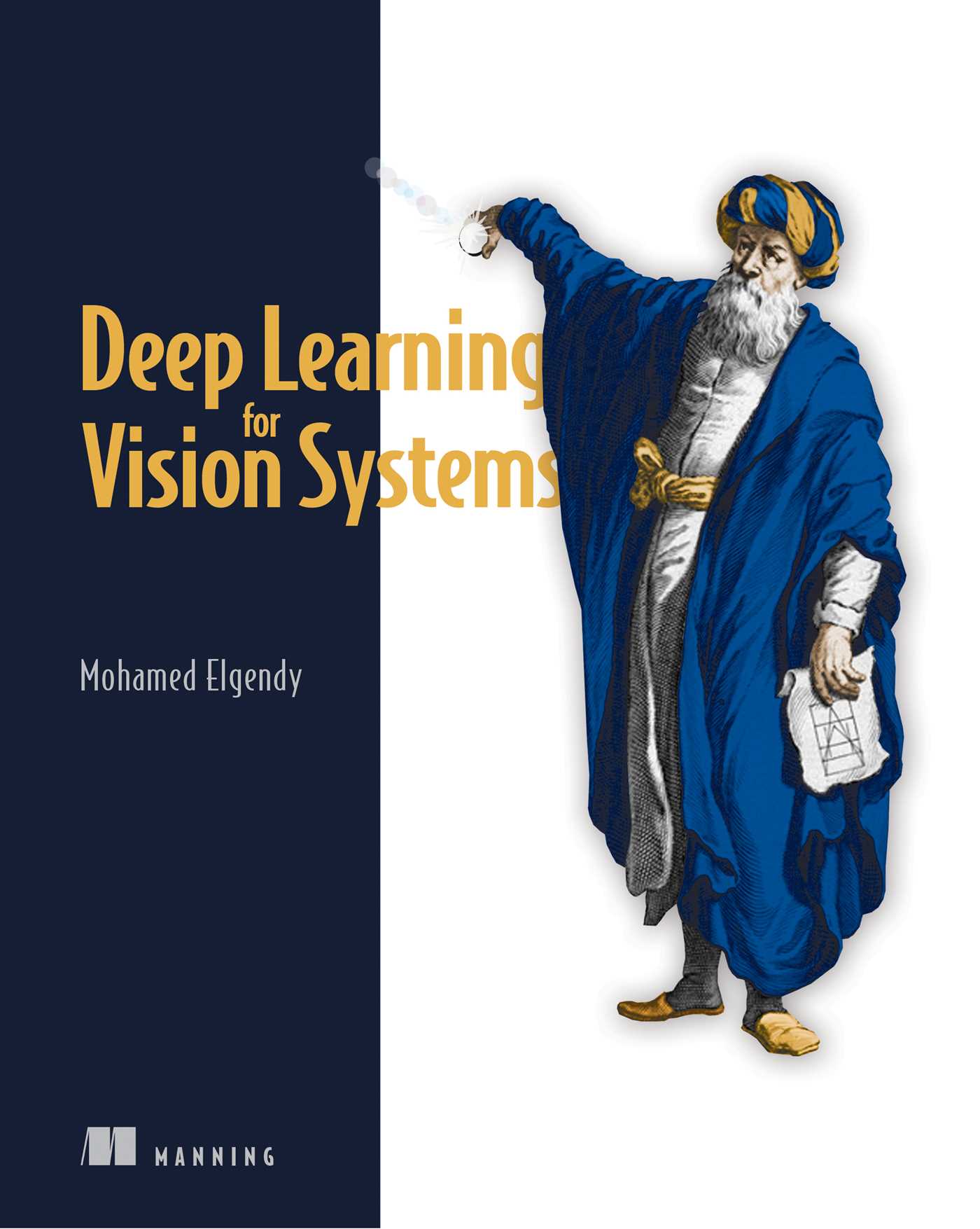
This book should be the go-to text for anyone looking to learn about how machine learning works in AI (Artificial Intelligence) and, fundamentally, how the computer sees the world. By using only the simplest algebra a high school student would be able to understand, they can demonstrate some overly complicated topics within the AI engineering world.
Learn about deep learning using Python
Through illustrations as well as Elgendy’s expertise, the book is the most accurate yet simplest way to understand computer vision for the modern day. ~ Founder & CEO of Lantech
5. Digital image processing by Rafael C. GONZALES and Richard E. Woods:
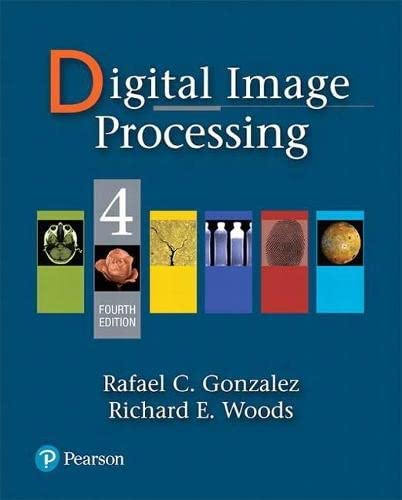
Image processing is one of the topics that form the core of Computer Vision and DIP by Gonzalez is one of the leading books on the topic. It provides the user with a detailed explanation of not just the basics like feature extraction and image morphing but also more advanced concepts like wavelets and superpixels.
It is good for both beginners and people who need to refresh their basics. It also comes with MATLAB exercises to help the reader understand the concepts practically.
Senior Machine Learning Developer, AltaML Rafael C. GONZALES and Richard E. Woods wrote this book to provide an introduction to digital image processing for undergraduate students and professionals who are interested in this field.
The book covers the fundamentals of image formation, sampling and quantization, the design of analog-to-digital converters, image enhancement techniques such as filtering and edge detection, image compression techniques such as JPEG and MPEG, digital watermarking techniques for copyright protection purposes and more advanced topics like fractal analysis in texture synthesis.
6. Practical machine learning for computer vision: End-to-end machine by Martin Görner, Ryan Gillard, and Valliappa Lakshmanan:
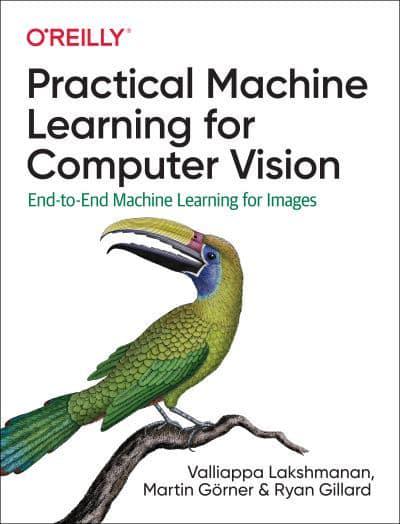
Learning for Images. This tutorial shows how to extract information from images using machine learning models. ML (Machine Learning) engineers and data scientists will learn how to use proven ML techniques such as classification, object detection, autoencoders, image generation, counting, and captioning to solve a variety of image problems.
You will find all aspects of deep learning from start to finish, including dataset creation, data preprocessing, model design, model training, evaluation, deployment, and interoperability.
Valliappa Lakshmanan, Martin Görner, and Ryan Gillard of Google show how to use robust ML architecture to develop accurate and explainable computer vision ML models and put them into large-scale production in a flexible and maintainable manner.
You will learn how to use TensorFlow or Keras to design, train, evaluate, and predict models. Senior IT Director at Propnex
Further, this book provides a great introduction to deep end-to-end learning for computer vision, including how to design, train, and deploy models. You will learn how to select appropriate models for various tasks, preprocess images for better learnability, and incorporate responsible AI best practices.
The book also covers how to monitor and manage image models after deployment. You will also learn how to put your models into large-scale production using robust ML architecture. The authors are Google engineers with extensive experience in the field, so you can be confident you are learning from the best. – Will Cannon, CEO, and Founder of Uplead.
7. Computer vision by Richard Szeliski:
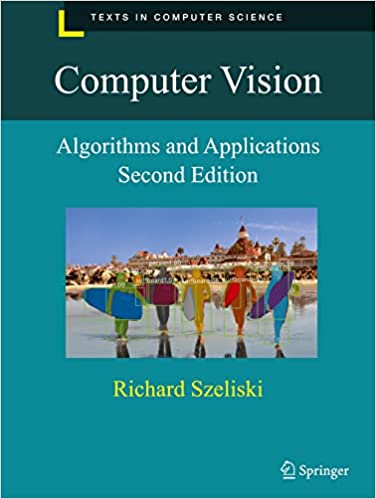
This book is all about algorithms and applications. This book is perfect for undergraduate students in computer science as it aims to provide a comprehensive course in computer vision. It is also known as the bible of computer vision. The focus of this book is on the algorithm, application, and techniques for image processing and recognition in CV.
It also helps one to get an understanding of the real-based applications and further discuss the implementation and practical challenges of techniques in computer vision. Co-Founder at Twiz LLC
If you are interested in teaching senior-level courses in this subject, then this book is for you as it can help you to learn more techniques and enhance your knowledge about computer vision.
Share more computer vision books with us
If you have read any other interesting computer vision books, share them with us in the comments below, and let us help the learners begin with computer vision.

